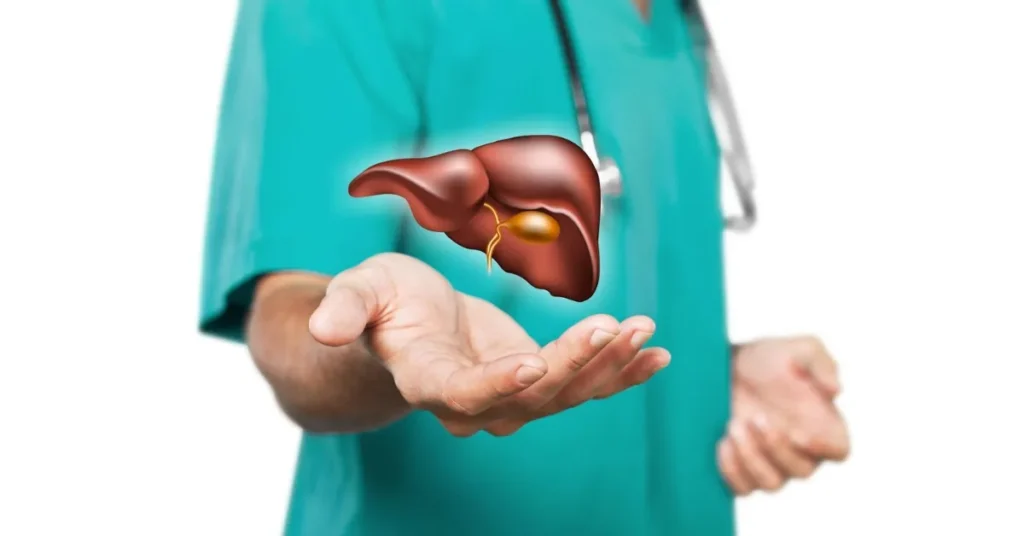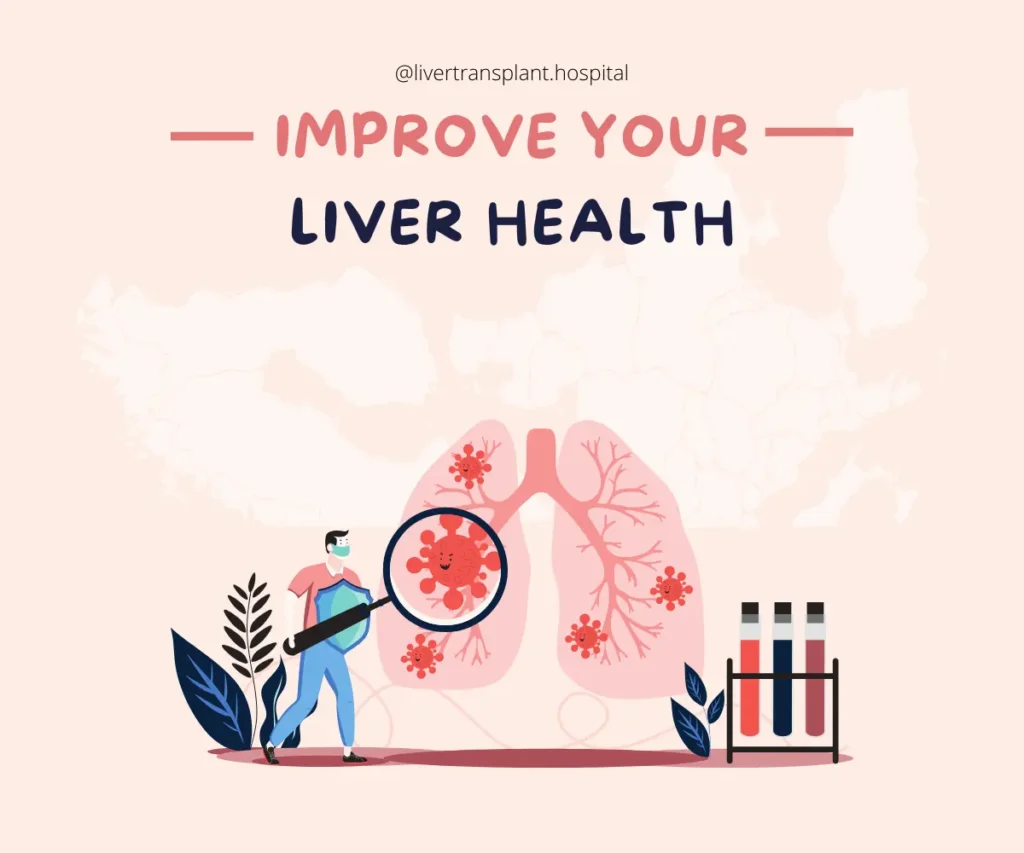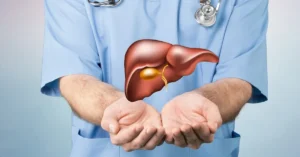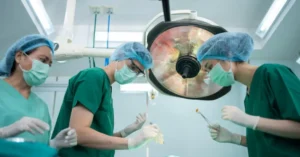Contraindications in liver transplant surgery can be life-saving, but it’s not suitable for everyone. Key contraindications include active substance abuse, uncontrolled infections, severe cardiopulmonary disease, advanced age, malignancies outside the liver, and lack of social support. Recognizing these factors is crucial for patient safety and transplant success. It’s important to consult healthcare providers to assess individual suitability for surgery and understand the associated risks and benefits.
Active Substance Abuse
Active substance abuse is a significant contraindication for liver transplant surgery. Patients who are currently abusing alcohol or drugs are typically deemed unsuitable for the procedure due to the high risk of continued substance abuse post-surgery. This can lead to recurrent liver damage, negate the benefits of the transplant, and result in poor overall outcomes. To ensure the long-term success of a liver transplant, patients must demonstrate a sustained commitment to sobriety and healthy living.
Substance abuse not only affects the liver but also has systemic effects that can complicate the surgery and recovery process. As a result, transplant centers often require evidence of abstinence and participation in a structured rehabilitation program before considering a patient for transplantation.
Key Points
- Risk of Recurrence: Continued substance abuse post-transplant can lead to new liver damage, negating the benefits of the surgery.
- Systemic Effects: Substance abuse affects multiple organ systems, complicating surgery and recovery.
- Rehabilitation Requirement: Patients must complete a structured rehabilitation program to be considered for transplantation.
- Commitment to Sobriety: Demonstrating a sustained commitment to sobriety is essential for eligibility.
- Support Systems: Strong social and support systems are crucial for maintaining sobriety post-transplant.
- Monitoring and Follow-up: Regular monitoring and follow-up are necessary to ensure continued abstinence and transplant success.
Ensuring that patients are free from active substance abuse is vital for the success of liver transplant surgery. It reduces the risk of complications, promotes better long-term outcomes, and helps patients achieve a healthier, more stable post-transplant life.
Uncontrolled Infections
Uncontrolled infections are a significant contraindication for liver transplant surgery. The presence of an active infection can severely compromise the success of the transplant and the patient’s recovery process. It is crucial for patients to be free from any severe infections before undergoing such a complex procedure. Here are the key considerations regarding uncontrolled infections and liver transplant surgery:
Infections can lead to systemic complications, such as sepsis, which can be life-threatening, especially in an immunocompromised state post-transplant. Ensuring that patients are infection-free minimizes the risk of these complications. Here are some important points to consider:
- Systemic Complications: Active infections can spread throughout the body, causing severe systemic complications like sepsis.
- Immunosuppression Risk: Post-transplant patients are placed on immunosuppressive drugs, increasing their vulnerability to infections.
- Pre-Transplant Evaluation: Thorough pre-transplant evaluations are essential to identify and treat any existing infections.
- Antibiotic Resistance: Some infections may be resistant to antibiotics, complicating treatment and increasing the risk.
- Delayed Surgery: If an infection is detected, the transplant surgery is typically delayed until the infection is fully resolved.
- Post-Transplant Monitoring: Continuous monitoring for infections post-transplant is crucial to ensure quick intervention if any new infections arise.
Patients must undergo comprehensive medical evaluations to identify and treat any infections before being considered for liver transplant surgery. Treating these infections beforehand can significantly improve the chances of a successful transplant and recovery. Additionally, post-transplant care involves rigorous monitoring to detect and manage any infections promptly, ensuring the patient’s safety and well-being throughout the recovery process.
Cardiopulmonary Disease
Severe cardiopulmonary disease is a significant contraindication for liver transplant surgery. Patients with advanced heart or lung conditions face higher risks during and after the procedure due to the increased physical stress placed on their bodies. Evaluating a patient’s cardiopulmonary health is crucial to determine their suitability for liver transplantation.
Cardiopulmonary disease includes conditions such as congestive heart failure, chronic obstructive pulmonary disease (COPD), and severe pulmonary hypertension. These conditions can compromise a patient’s ability to endure the surgical procedure and recover effectively. Here are some key points to consider:
- Increased Surgical Risks: Patients with severe cardiopulmonary disease are at a higher risk of complications during surgery due to the added strain on the heart and lungs.
- Comprehensive Evaluations: Detailed cardiac and pulmonary assessments are necessary to evaluate a patient’s fitness for surgery and identify potential risks.
- Post-Operative Challenges: Recovery can be more difficult for patients with compromised heart and lung function, leading to longer hospital stays and increased need for supportive care.
- Management of Conditions: Pre-existing cardiopulmonary conditions need to be managed optimally before considering liver transplant surgery to minimize risks.
- Individualized Assessment: Each patient’s overall health and ability to withstand surgery are assessed on a case-by-case basis.
- Interdisciplinary Approach: Collaboration between cardiologists, pulmonologists, and transplant surgeons is essential to ensure comprehensive care and the best possible outcomes.
Patients with severe cardiopulmonary disease must undergo thorough evaluations to determine their suitability for liver transplant surgery. Addressing these challenges through a multidisciplinary approach can help optimize patient outcomes and ensure a safer surgical experience.
Advanced Age
Advanced age can be a significant factor when considering eligibility for liver transplant surgery. While there is no strict age limit, older patients often face increased risks and complications that can affect the success of the procedure and their overall recovery. Each patient is evaluated on an individual basis, taking into account their overall health, medical history, and ability to withstand the physical demands of surgery and recovery.
One of the primary concerns with advanced age is the reduced physiological reserve, which can make it more challenging for older patients to recover from major surgery. Additionally, older patients are more likely to have comorbidities such as diabetes, hypertension, and cardiovascular diseases, which can complicate the transplant process.
Here are some key considerations regarding advanced age and liver transplant surgery:
- Reduced Physiological Reserve: Older patients often have a diminished ability to recover from surgery due to decreased organ function and slower healing processes.
- Higher Risk of Complications: Advanced age is associated with a higher likelihood of surgical complications, such as infections, bleeding, and organ rejection.
- Comorbidities: The presence of other chronic conditions like diabetes and heart disease can complicate both the surgery and post-operative recovery.
- Individual Health Assessments: Comprehensive evaluations are conducted to assess each patient’s overall health and fitness for surgery, rather than relying solely on age as a criterion.
- Potential for Lower Survival Rates: Studies have shown that older patients may have lower long-term survival rates after a liver transplant compared to younger patients.
- Focus on Quality of Life: For many older patients, the decision to undergo liver transplant surgery is based on the potential improvement in quality of life rather than just extending lifespan.
While age is an important factor, it is not the sole determinant of eligibility for liver transplant surgery. A thorough assessment of the patient’s overall health, support system, and potential benefits of the transplant is essential to making an informed decision. For older patients, the focus is often on improving quality of life and achieving a successful recovery.
Malignancies Outside the Liver
Malignancies outside the liver are a significant contraindication for liver transplant surgery. Patients with active or recent cancers in other parts of the body are generally not considered suitable candidates for this procedure. The primary concern is that the presence of cancer elsewhere can reduce the likelihood of a successful transplant and long-term survival. Here are some critical points to consider regarding malignancies outside the liver:
- Metastatic Cancer Risk: When cancer has spread beyond the liver, it increases the risk of recurrence after transplantation. This spread, known as metastasis, complicates treatment and reduces the chances of a successful outcome.
- Survival Rates: Patients with active malignancies outside the liver typically have lower survival rates post-transplant. This factor is crucial in determining eligibility for liver transplant surgery.
- Comprehensive Evaluation: A thorough cancer evaluation is necessary to ensure there are no active malignancies. This evaluation includes imaging studies, biopsies, and other diagnostic tests.
- Cancer-Free Period: Many transplant centers require a cancer-free period before considering a patient for a liver transplant. This period allows time to ensure that the cancer is in remission and reduces the risk of recurrence.
- Ongoing Monitoring: Even after meeting the initial criteria, ongoing monitoring is essential. Regular follow-ups and cancer screenings help in early detection and management of any new malignancies.
- Multidisciplinary Approach: Managing patients with a history of malignancies requires a multidisciplinary approach. Collaboration between oncologists, transplant surgeons, and other specialists ensures comprehensive care and optimal outcomes.
Understanding the implications of malignancies outside the liver is crucial for patients and healthcare providers. By thoroughly evaluating and addressing these risks, the chances of a successful liver transplant surgery can be significantly improved. Patients should discuss their individual circumstances with their healthcare team to determine the best course of action.






